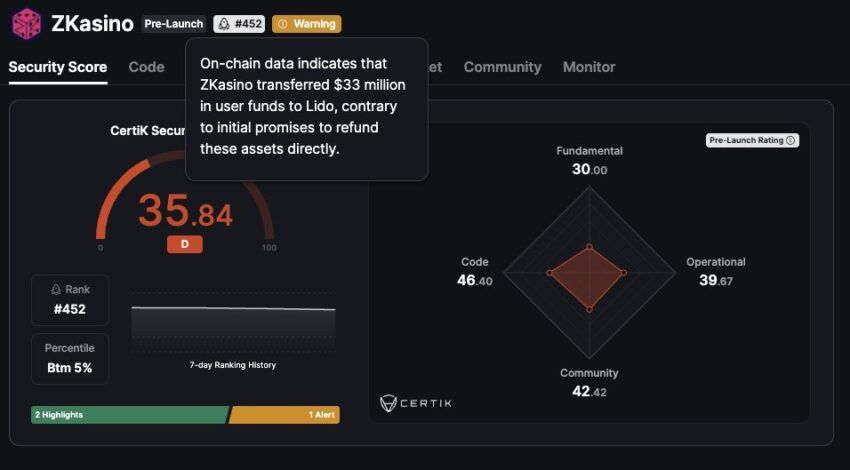April 2024 witnessed a remarkable 141% reduction in financial damages due to crypto-related security exploits, with losses totaling a historic low of $25.7 million.
This figure represents the smallest amount recorded since 2021, suggesting a significant improvement in Crypto security measures.
Crypto Security Exploits Drop, Indicating Enhanced Its Safety
Crypto security firm CertiK highlighted that the sharp decrease in damages was primarily due to fewer exploits targeting blockchain protocols. The bulk of the April losses, amounting to $21 million, arose from DeFi platform attacks.
The repeated breach of FixedFloat’s Ethereum-based hot wallet resulted in a $2.8 million loss. The same group was responsible for a February attack, which cost the exchange $26 million, perpetrated this incident.
“Combining all the incidents in April, we’ve confirmed ~$ $25.7 m lost to exploits, hacks, and scams. This is the lowest figure we’ve recorded, dating back to 2021, and it is a 141% decrease from March,” CertiK said.
Additionally, exit scams accounted for $4.3 million in losses. These frauds, where founders absconded with invested funds, included notable incidents like the suspected rug pull by crypto casino ZKasino. This is under investigation for potentially diverting $32 million in Ethereum.
Read more: What Is a Rug Pull? A Guide to the Web3 Scam

Only three major incidents in April exceeded the $1 million threshold, reflecting a strengthening in protocol security. Among these, the tokenization platform Grandbase suffered a $2 million theft due to a compromised private key, which led to unauthorized token minting and subsequent robbery.
CertiK’s analysis points to an encouraging trend of resilience within the cryptocurrency industry despite ongoing challenges. The reduction in private key compromises and the lower frequency of high-value breaches suggest that enhanced security practices are becoming more effective.
Read more: Crypto Scam Projects: How To Spot Fake Tokens
Experts from CertiK and data from DefiLlama indicate that the DeFi sector, which has been the most affected since 2016 with losses totaling $5.8 billion, is now seeing a reversal in this trend.
 beincrypto.com
beincrypto.com